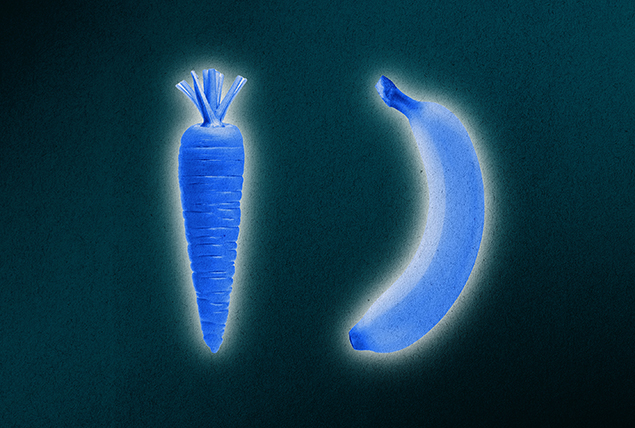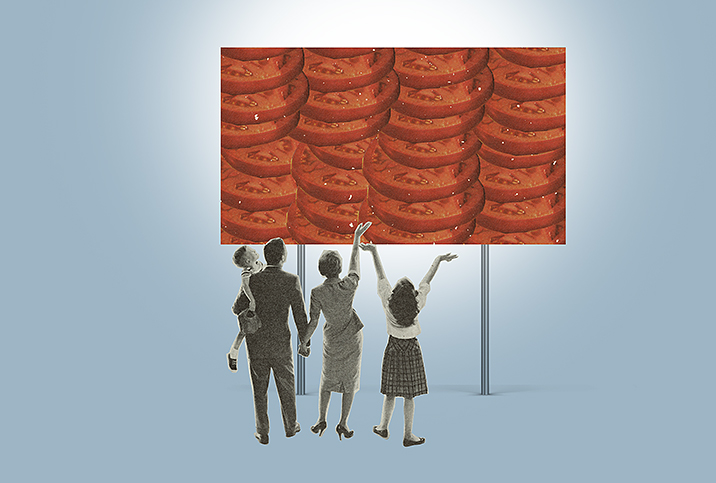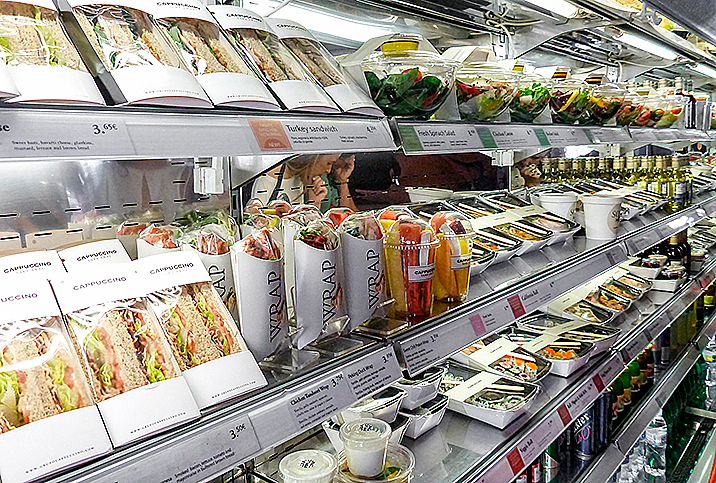What's the Difference Between 'Good' and 'Bad' Nutrition?

People often discuss the benefits of good nutrition for their health and the consequences of bad nutrition, but the terms "good nutrition" and "bad nutrition" are rather nebulous. They don't really point to any specifics about a person's diet.
It's important to be able to define what constitutes good and bad nutrition in order to have the knowledge and self-efficacy to manipulate your diet to support your overall health.
Experts in the field of nutrition have a clear picture of the differences between good and bad nutrition, as well as common risk factors and triggers that could cause someone to submit to a poor diet.
What constitutes good nutrition?
Almost all of us want to consume a healthy, balanced diet, but what exactly does this mean?
While the specific foods vary between individuals, good nutrition generally means a person is eating a diet and leading a lifestyle that brings them health, energy and vitality, said Kimberly Gomer, M.S., a registered dietitian and licensed dietitian/nutritionist, and the director of nutrition at Body Beautiful Miami.
"Their diet should include foods that balance their blood sugar, mood and provide them with all of the essential nutrition for optimal functioning," she said. "There is a large variance in what and how much food a person can eat for optimal health."
Gomer said determining the foods that constitute a good diet for any one person involves looking at the following factors of the individual at baseline:
- Current health situation, such as medical conditions, medications and labwork to identify deficiencies, etc.
- Age
- Quality of sleep
- Stress levels
- Exercise habits
- Energy levels
She added that various medical conditions can alter what foods make up a healthy diet for a specific individual. For example, if someone has type 2 diabetes or insulin resistance, their diet looks quite different from that of someone who is metabolically healthy.
"Good nutrition means having a balanced diet that contains mostly plants, such as fruit, vegetables, whole grains, nuts and seeds; heart-healthy fats from cold-water fish for omega-3s; olive oil, avocados, nuts and seeds, and lean, clean proteins from both animals and/or plant options," said Amy Shapiro, M.S., a registered dietitian and the founder of Real Nutrition in New York City. "It also means avoiding ultra-processed foods most of the time, staying hydrated, avoiding excess sugars and watching portions so you feel satisfied but not stuffed."
You don't have to be perfect to have good nutrition, Shapiro explained. You should have a healthy relationship with food and control over your eating patterns.
"Good nutrition means being able to navigate any situation, enjoy a decadent moment and get back on track when you can," she said. "[Also], supporting your system with supplements where you have gaps and listening to your body."
What constitutes bad nutrition?
In contrast to good nutrition, Gomer defines bad nutrition as when a person is eating foods that result in less-than-optimal health.
"For example, if the food a person eats leads to insulin resistance, gut issues, obesity, low energy, among many of the reasons that nutrition can lead to ill health," she said. "For many of us, food has become a reward, entertainment or even an addictive drug. These foods, particularly the ultra-processed foods that are loaded with refined grains, sugar, processed seed oils, chemicals and additives, contribute to obesity, heart disease and cancer."
Essentially, Gomer said a diet full of packaged and processed foods, fast food and restaurant food is a recipe for bad nutrition.
Risks, causes and triggers for bad nutrition
It's less helpful to characterize nutrition as good or bad in absolute terms, according to Kent L. Bradley, M.D., the chief health and nutrition officer at Los Angeles-based Herbalife Nutrition. Instead, he says the problem lies in deviating from what nutrition is meant to be for the body.
"Nutrition has as its roots the Latin for nutrire, to feed or nourish," Bradley explained. "The issue today is that when we feed ourselves, we are reaching for options that are less nourishing to our body. They have less nutrients that our body needs, essential vitamins, complete proteins, fiber, etcetera, and more of the type of nutrients that our body already has in excess, such as fats and sugars.
"Fatty, sweet and salty foods can appeal to our reward center in our brain, which makes them especially difficult to refrain from choosing," he said. "A reward for accomplishing a difficult task, to ward off boredom, to deal with stress are all common triggers for choosing foods that have less of the nutrients that the body needs."
Gomer shared that there are several risk factors and triggers for bad nutrition, but eating ultra-processed foods is usually the primary culprit.
Processed foods have been taken out of their natural state by adding salt, sugar, oil and/or additives such as chemicals, colors, flavorings, stabilizers and preservatives. Processed foods may also have parts of the food stripped away, such as the fiber- and vitamin-rich bran that doesn't make it into refined white flour.
"That's why [processed foods] have an extremely long shelf life, which is attractive to both people and industry," Gomer said. "Most of these foods have a long list of ingredients found on the ingredient list of the food label. These foods include, but are not limited to, frozen meals, cakes, cookies, fast food, packaged foods and snacks."
Gomer added that many of these food items use processed, industrial seed oils such as hydrogenated cottonseed oil or soybean oil.
"These industrial oils raise our omega-6 to omega-3 fatty-acid ratios, which can harm the heart and the gut. These seed oils are unstable and oxidize easily and contain harmful additives," she explained. "They are derived from GMOs [genetically modified organisms], and when these oils are repeatedly heated, even more toxic byproducts are created. They also aggravate the gut by being pro-inflammatory and can be responsible for bloating and gas symptoms."
Some of these particularly unhealthy oils include the following:
- Soybean oil
- Corn oil
- Canola oil
- Cottonseed oil
- Grapeseed oil
- Rice bran oil
- Safflower oil
- Sunflower oil
Pay particular attention to any mention of these industrial oils on an ingredients list, especially if they are preceded by the words "partially hydrogenated." This hydrogenation process is what changes the chemical composition of the oil to be more shelf-stable but makes the oil particularly adversarial to human health.
Gomer added that processed foods are popular and pervasive because they are highly addictive due to the combination of sugar, salt and fat, which can in turn lead to cravings.
"One of the reasons people have trouble with these processed foods is that ultimately, the high sugar, processed vegetable oils and processed grains lead the way in advancing insulin resistance and inflammation in the body," she explained. "These lead to diabetes, obesity, heart disease, cancer and many other health issues, including sexual dysfunction."
The addictive nature of processed foods and fast food makes these types of dietary choices triggers for even further unhealthy eating.
Therefore, when trying to support good nutrition and avoid bad nutrition, turning to healthy foods is often a catalyst for overall dietary improvements and, in turn, better sexual function.
A lot of people, even those who put in a concerted effort to eat better, still end up lacking many of the vitamins, nutrients and minerals they need. Supplementation can help, and a daily multivitamin is often recommended. Giddy Health offers a Multivitamin for Men and a Multivitamin for Women. Both are specially formulated for a healthy life and are made with microbeads to ensure a slow release throughout the day.
Editor's note: These statements have not been evaluated by the Food and Drug Administration. Our medical experts advise that you consult with your primary healthcare provider before you begin using a supplement. This information is not intended to diagnose, treat, cure or prevent disease.


















